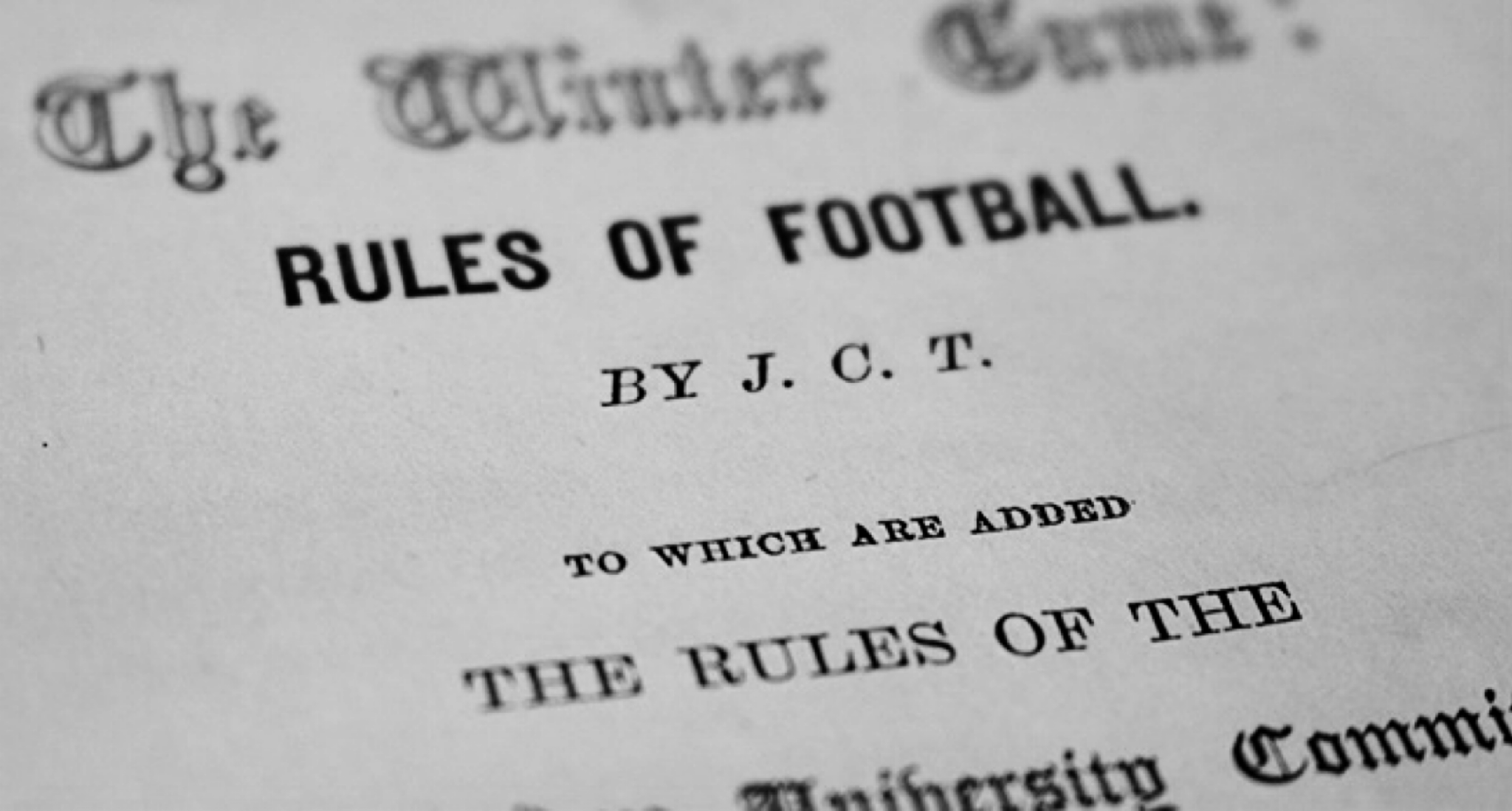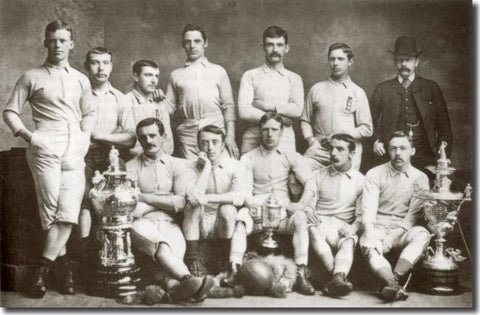
The origins of professional English football.
It’s hard to put a clear date on the inception of football. Early references to the game include the ancient Greeks and Romans who were known to have played a similar game to rugby circa the 5th century BCE. A later famously recorded reference to football is in a 1314 decree banning the sport issued by the Lord Mayor of London, Nicholas de Farndone, on behalf of King Edward II. It wasn’t until the 1800’s that we see what we recognize today as official football.
When the first competitive balls were kicked around, there was nothing in the way of professional organization or decorum of the game. This was a street game by all accounts. Players would form teams with the same men with whom they worked in their factory jobs.

The working-class folks saw this as the ultimate release of stress from their humdrum factory lives and the crushing monotony that came with working five-and-a-half days a week. For those more well off, football was viewed as an opportunity to exercise and be social at the same time. Competitive it certainly was, although winning was not necessarily as passionately sought by this more refined crowd.
In the early 1800’s, football became increasingly significant in the public schools because it was well suited to the ideals of the "Muscular Christianity" cult, which essentially glorified athleticism, discipline and self-sacrifice. It was, like cricket, perceived to be a "character-building" sport.
Because this burgeoning sport was the plaything of the elite, and with public school interest also taking hold of the game during its formative years, there was something of a division beginning to form in football’s early days. By the 1820s, public schools began to devise their versions of football rules of which were verbally agreed and handed down over many years. Each school (e.g., Eton, Harrow and Winchester) had its own variations.
In 1815, Eton College established a written set of rules for the game. According to the University of Cambridge, in 1856 signatures were put to a document setting out the Cambridge Rules of Football. These rules were later adopted by the fledgling Football Association at a meeting in London in 1863 as the official rules of the national game.
Prior to this, football was segregated into two groups with some colleges and schools opting for Rugby rules that allowed for a more physical version including tripping, shin kicking and carrying of the ball. These rules were strictly prohibited as per the Cambridge Rules.

In 1871, the Football Association Challenge Cup (better known worldwide as the F.A. Cup) was created. The F.A. Cup is the oldest existing formal football competition on record. To win this challenge meant absolutely everything to those in the northern quarter of the country, so much so that extreme measures were subsequently taken.
In the 1880’s, football was still an amateur game. That was until the working-class clubs decided that the only way to boost their ranks was to attract players from elsewhere and if that meant bending the rules, then so be it. With football in Scotland being viewed as evolving faster than that of their English counterparts, players across the border were considered to be highly desirable and the only way to entice them south was with a handful of illicit pennies under the table.

Soon the clubs were putting a thumb in the eye of their more established counterparts, and with each defeat the loftier class suffered, an increase of suspicion was being aroused. Suspicion that would eventually be confirmed, and although the elite would first cry foul, they would eventually see that if they did not pay to play, they would be in danger of being left behind by those who were willing to stock their teams with exceptional players.
By 1885 the English Football Association finally chose to allow the use of professional players. Not only did this mean that under the table payments would stop, but it also meant that no amateur team would ever win the F.A. Cup again.
The simplicity, purity and passion in the foundation and origin of the game is what has not changed. This is what made us fans for life. For those of us who have been able to play, we know that nothing comes close to the feeling of the ball at your foot or executing a great pass made with just the right timing. We live for this game.
Let’s continue to make it the beautiful game.
Join us.
Be a TENLEGEND
